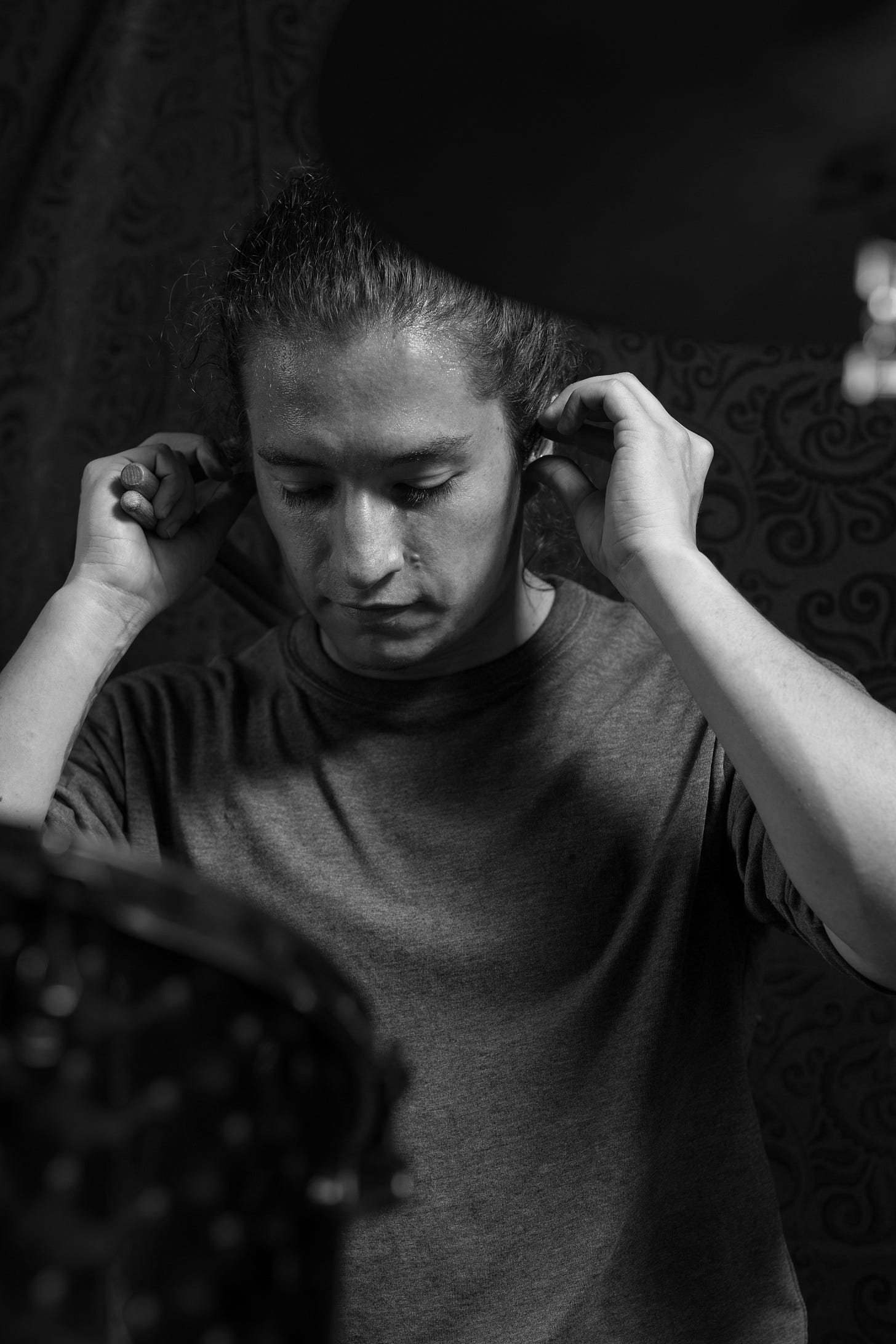You are not Old. You're just Loud.
Musicians & Hearing Loss (And What the Hell to Do About It)
Like so many of you out there gigging every weekend, Manny can seriously walk into any bar where there is live music and tell me exactly which frequency needs tuning. He feels it in his body.
But those flappy things on the side of each head?
Not so much.
It’s a more muffled sound these days.
And he is not alone.
Rock gods are deafinitely still rocking. But many of them are actually going deaf. Like, actually deaf.
Let’s take a quick roll call:
Dave Grohl: “I’m a rock musician. I’m deaf. I can’t hear what you’re saying.” (Also reads lips like a ninja.)
Sir George Martin: “Nobody warned us. Loud music? 14-hour sessions? Yep, damaged.”
Roger Daltry: “Very, very deaf.”
Mick Fleetwood: Raised awareness with a quiet rock concert.
Sting: Knows he’s losing hearing but still won’t wear hearing aids.
Alice Cooper: Calls his hearing aids “clearing aids” (respect).
If legends are battling hearing loss, what chance does the local guitar hero with a Marshall stack and a no-earplug policy have?
According to a 2023 study, 20–60% of rock, pop, and jazz musicians suffer from hearing loss greater than 20 dB in the 3,000–8,000 Hz range. That’s your sweet spot for clarity, detail, and those crispy highs.
Translation: your snare sounds dull, the vocals get muddy, and the punter’s experience goes flat — because you can’t hear it properly anymore.
Oof.
Let’s be honest: you’ll drop $2k on a pedalboard or stage outfit.
But when it comes to protecting the one thing you actually need to do your job — your hearing —you shrug, say “nah I’m fine” and blast your in-ears like it’s your last gig on Earth. This is truly the rock n roll injury that nobody talks about. But should.
You wouldn't perform with a busted guitar. So why play with busted ears?
Here’s the Musoverse Cheat Sheet to keep you hearing your art and your audience:
1. Get Your Ears Checked, FFS
Tinnitus? Ringing? Sudden dullness? Don’t Google it. Go. To. A. Doctor.
Audiologists aren’t just for retirees — they’re your sound engineer’s BFF.
2. Invest in Custom Musician Earplugs
Not foam from the servo. I’m talking precision-fit, decibel-smoothing plugs made for musicians.
They cut volume without cutting fidelity. Your ears will weep with gratitude.
3. TURN IT THE HELL DOWN
Yeah, you love the roar. We get it. But the CDC says anything over 70 decibels is a one-way ticket to Tinnitus Town.
Personal device rule: 60% volume, max 60 mins. Then pause. (Or go full Dali Lama for 10 mins.)
4. There’s an App for That
Download a decibel reader and actually measure the madness. Trust me — you’ll be shocked.
Don’t wait until the ringing won’t stop.
5. Take Sound Breaks
Every hour, 5–10 minutes away from noise. Step outside. Go hug a tree. Meditate. Breathe.
Your ears will love you. Your future self will buy you a beer.
6. Use In-Ear Monitors Properly
Not just for the pros. These help you control your stage mix without frying your hearing.
Work with an audiologist to get the right fit and training. Don’t DIY your way to deafness.
Remember its not just you on stage. Producers, front of house, lighting crew, bar staff, door bitches, and stage managers —this applies to you too.
We all live in the same sonic soup. Protect your gear (your body is your gear).
The world needs your music.
But your music needs you more— clear-headed, tuned in, and able to hear the nuance.
So be a badass and protect your ears.
Because hearing loss is permanent.
And the silence after a show should be a choice, not a consequence.
Take care of your ears.
So you can keep making noise that matters.
Written by Nichola Burton. I work in partnership with Agents, Artist Managers and Event Producers, who juggle a diverse range of relationships in the Musoverse, to curate, manage and measure data in systems, experience, creative and content to support the entire Musoverse operation in my enterprise A Little Pitchy Copyright 2025



